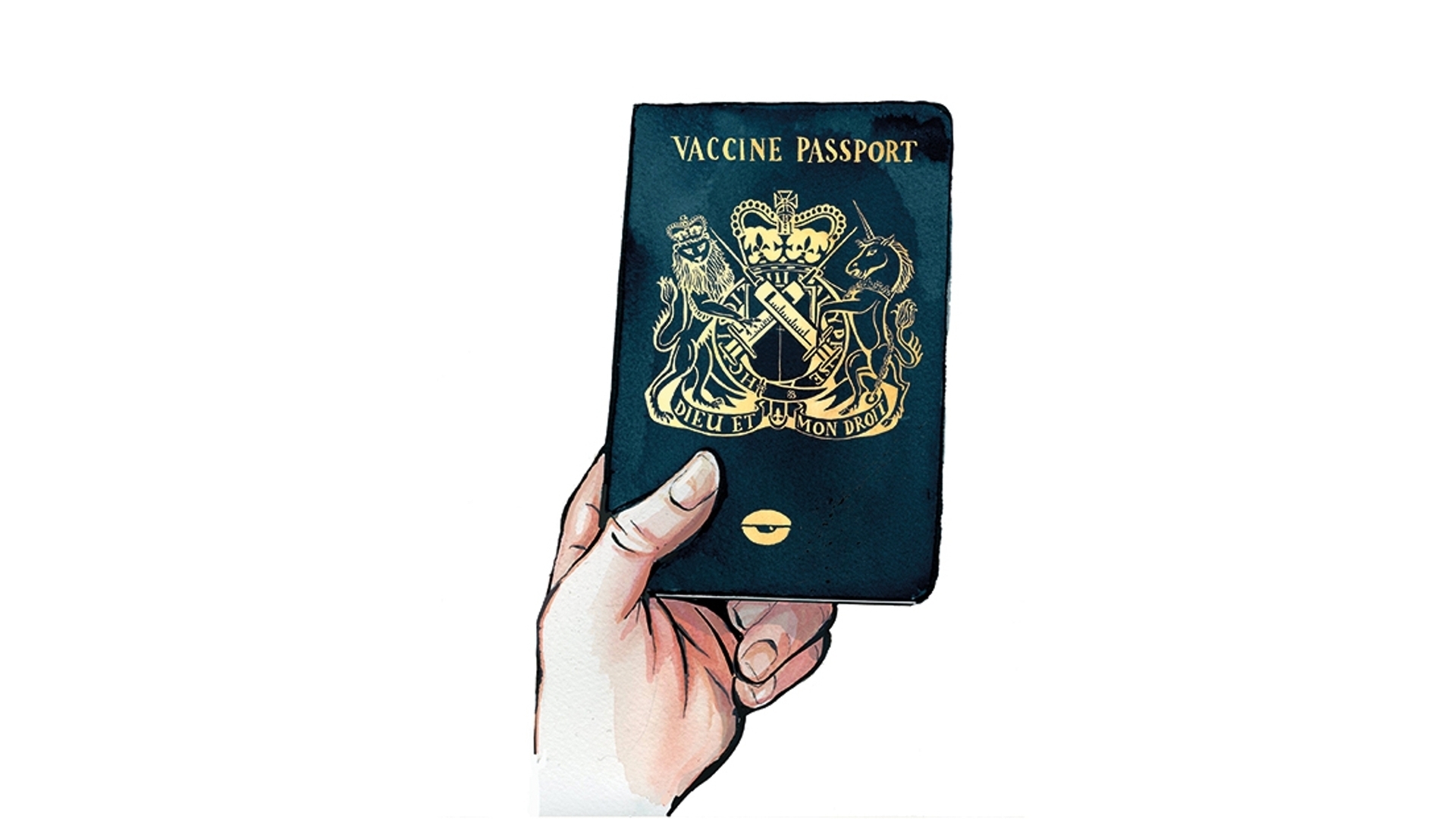In one sense vaccines are the perfect example of the ‘greater good’. Every citizen bears a tiny risk to protect not just their own health but that of society as a whole. By contrast, I can think of few graver threats to that greater good than the introduction of vaccine passports.
Until recently the accepted view in Westminster seemed to have been that vaccine passports of any kind were discriminatory. Nadhim Zahawi, the vaccines minister, was told by the Public Administration and Constitutional Affairs committee last month that ‘Covid-status certification system would, by its very nature, be discriminatory.’
This all changed last week with the announcement that passports might, after all, be needed for nightclubs and large events. And then on Sunday evening, it was reported that the Prime Minister had suggested vaccine passports could be introduced as a condition to university life – meaning students would have to show a vaccine pass to attend lectures or live in their halls of residence. The children’s minister, Vicky Ford, did not rule the measures out on Monday – saying that ‘no decision had been taken yet’.
The government’s desire to increase vaccine uptake among the young is understandable. But using vaccine passports is needlessly heavy-handed. This is even more the case when you deny young people access to education unless they show their vaccine pass. Education is one of the fundamental building blocks of a good life – and it is hardwired into legislation as a basic human right. Until 24 hours ago the thought that we would turn that right into a privilege contingent upon a medical intervention would have been unthinkable. In fact as recently as last week Nadhim Zahawi apparently agreed, reassuring MPs in the House of Commons that they would not be introduced in educational settings.
If introduced, vaccine passports for students will have wide implications. Jackie Cassell, a professor of public health at Brighton and Sussex medical school, points out that ‘individually informed consent is the bedrock of trust in vaccination and the wider public health system’. Yet by making vaccination compulsory to access education that trust is completely undermined and informed consent quickly morphs into coercion (particularly for students who are mid-way through their courses and who would not want to interrupt their studies).
Once we have created a two-track society in our higher education system what happens next? Teaching unions are baying for school children to be vaccinated; and if vaccination is compulsory for Covid-19, why not flu, or the next coronavirus which rears its head? The same applies to Covid booster shots that may be needed in the winter. How many medical treatments will be needed for students to access their education? This is the antithesis of fairness and disproportionately penalises young people – who are not themselves at significant risk from this virus – after they have faced a year of deprivation.
The two most commonly heard arguments in favour of vaccinating young people are that it is required for herd immunity and so protects others, and that it is necessary to keep education open. But as vaccines do in fact mainly protect inoculated individuals against serious illness then by default vaccine passports are not necessary. Meanwhile, data coming out of countries with very high adult vaccination rates shows they are now seeing further waves of reinfection – undermining the argument that the vaccines will completely prevent transmission. And arguments based on keeping schools open ignore the fact that school closures are a policy decision – not a necessity.
University students are not children, but they are young people who now especially need our protection. As with any vaccine, the risk-reward ratio varies between individuals but heavy social media censorship and paucity of mainstream debate about those risks makes this latest suggestion especially concerning.
In truth, though, the problem with vaccine passports is no longer about the risk-reward ratio of a vaccine, important though that question is for every individual. Instead this goes to the very heart of the kind of society that we want to give our children. A two-tier education system paves the way for a two-tier society. Any number of cautionary tales from history tell us this does not end well.
Like many other parents on Sunday morning I woke up feeling saddened and, indeed, sickened that any government would so much as flirt with this profoundly dark idea. I only now hope that this scheme can unite voices from across the political spectrum to reject it immediately.






Comments